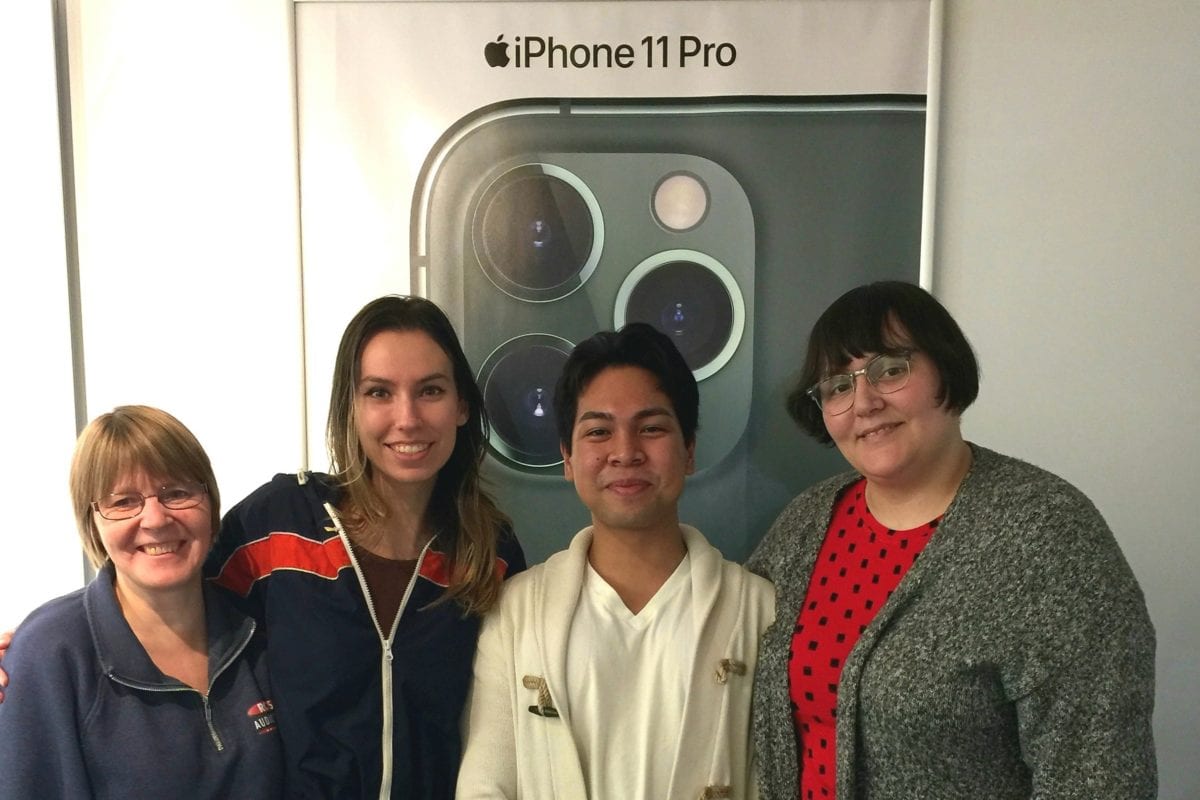Roy’s Audio Video Unlimited stands out as one of few small Yellowknife businesses that not only stayed open throughout the pandemic, but experienced a rise in sales.
From March until October, sales increased by more than 20 per cent compared to the same period for last year, said owner Roy Williams, who has been running the YK Centre store for 45 years.
“(Sales) ramped up to where any business would have a big smile on its face,” he said with a laugh. Cellphones, TVs and other electronics have been the most popular items since March.

photo courtesy of Roy and Maureen Williams
The uptick began shortly after the pandemic arrived in the NWT in late March, when most business closed down and more people began working from home.
“The government pretty well 100 per cent went home. As a store we supplied computer equipment, cameras, microphones, headsets, which, by the way, quickly, absolutely disappeared from the retail landscape,” Williams said.
He said his shop managed to avoid shortages by planning his stock purchases and ordering items as soon as they became available.
Several weeks later, after the technological needs of home-bound government and business sector employees were satisfied, demand started to rise among other Yellowknifers stuck at home.
“The consumers started to come in looking for another TV, a better TV. The consumer side in electronics takes over, in a big way,” Williams said.
He also attributes the rise in his customer traffic to online retailers like Amazon or Best Buy struggling to fill orders as fast as they could before Covid, due to global shortages.
“As a consequence of that, the consumer said, ‘Oh, we’ve got a store in Yellowknife. Why don’t we see what happens if we walk into that store?’ And they walked in and they said, ‘Oh my god, you’ve actually got these things. They’re on the wall. They’re in a box. I could take it home today.'”
But it wasn’t necessarily inevitable that Roy’s would thrive during the pandemic. If not for Williams’ determination to remain open after Covid hit the NWT, he might have closed like other retailers.
In the second half of March, as many businesses were shutting down, Williams said there was a push to close the YK Centre Mall, which he questioned.
“I was expected to just lay off my staff and send them home and cease doing business. I waited a day or two and then proceeded to advise the landlord that as I understood what the health minister had mandated, it wasn’t that everybody (should) shut down. It was non-essential services (that should),” he explained.
Williams said his shop fell into a grey area in terms of whether it was deemed essential enough to stay open. To him, it is essential because it sells important communications devices like cellphones and phone subscription plans.
After a period of back and forth with the mall authorities, he was allowed to keep his doors open.
“I got an email saying, ‘We got a proposition: we will open the door, we will put tape up where (people) don’t get into the rest of the mall, and people can have access into your store.’ And that’s what happened. So we never were made to close, never should we have been made to close because, again, we were part of what would be considered an essential business.”
While the past seven months have been mostly beneficial to William’s store, there are some difficulties of the pandemic that affect every business in some way. In Roy’s case, it has been the GNWT’s rule on self-isolation for anyone entering the territory.
“It costs us days, on occasion, where, if our staff have a funeral to go to, and they have to go to Alberta, when they come back, they can’t come right back to work. They’re quarantined for two weeks. That’s just something we will deal with,” he explained.
Williams dismisses the notion that his success amid the tough year of Covid-19 is owed to any unique business secret. Rather, he points to being “extremely fortunate” to be a vendor of cellphones, “one of the the ultimate technologies… that, in today’s world, is almost as required as gasoline and food.”
He also thinks that his four-plus decades in business have been noticed by both customers and suppliers.
“When distribution issues arise, we do get at least the recognition that we are an important reseller for the products. So we’re lucky, we have businesses that recognize our throughput and care and say, ‘Yep, we’re allocating (to you), but you know what? You’re worth it, we’re going to allocate some of this stuff to you.”

